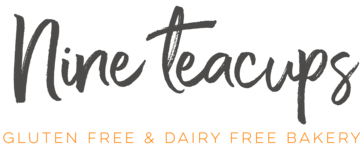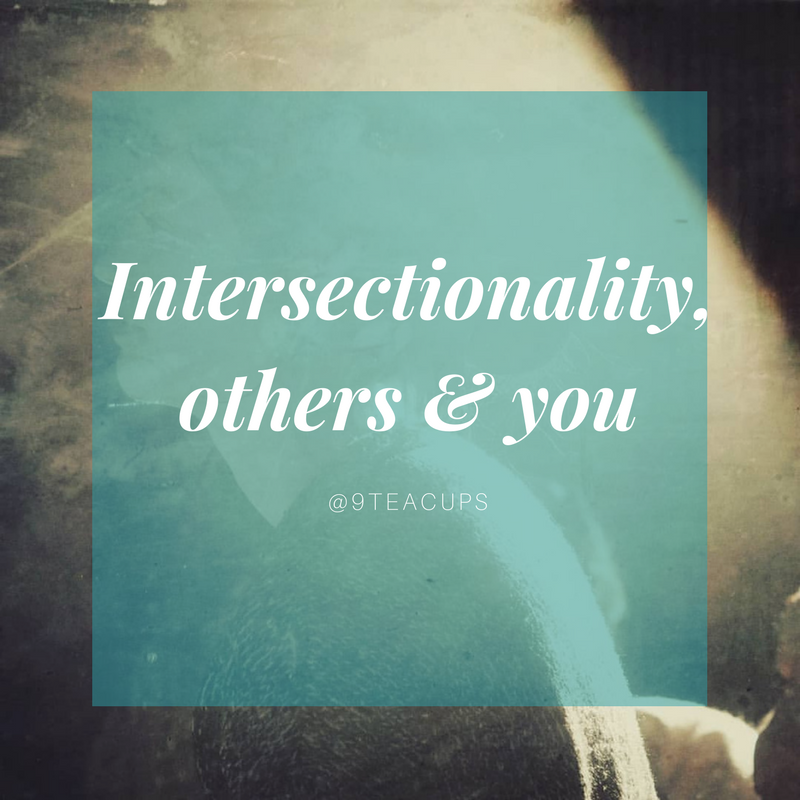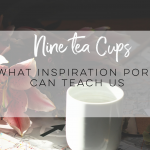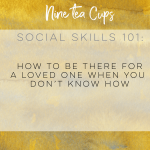Intersections are the areas of your life and life experience that are hard to convey to others. Why is it that people as a whole don’t understand things like living with chronic illness, autism, mental health problems, cultural values that differ from theirs? Well, it’s all about intersectionality and how we have been taught. But no-one tells you that.
Instead, we amble along in the hopes of “finding our tribe” and when we do meet people who have similar intersections to us it can feel like a weight has been lifted. But when we’re stuck with someone we don’t share intersections with, it can be trying if one or neither of us wants to open up and accept the fact that we will have had different experiences in life.
So what are intersections?
Ever heard the phrase “exclusive feminism is embarrassing”? Intersectionality is what it’s talking about. It considers the social impact of issues like class, race, age, disability, sexuality and gender, and states that they do not exist separately from eachother. Instead, intersectionality argues that the issues that are part of our lives are complexly interwoven. Exclusive inclusivity is not a thing.
By it’s definition, it affects us all; groups of friends tend to have overlapping intersections, and “communities” also have overlapping intersections. Intersections are kind of like meeting points. But because we don’t know that much about – or really talk about – intersectionality as something that affects us all, intersections tend to be used to explain difference instead of conveying differences in experiences.
Consider the quote that is used across social media, websites and magazines:
“You are unique, just like everybody else” – Jim Wright
Our uniqueness is our common ground, the intersections are where our stories diverge and where the greatest chance for connection lies; your beliefs, stories, experiences and views are related to and shaped by the intersections that make up your life so far. Some intersections might change (e.g. age, illness, where you live) , some won’t (e.g. ethnicity, sexuality).
Our intersections can make us feel alone, especially when people who we don’t share intersections with respond to our stories.
How do people usually refer to intersections they have no experience or idea about?
- Blank stares
- Witting/Unwitting Power plays: “it was just a joke, why are you *so* sensitive?” / “No-one has it easy in life, you should just deal with it.”
- Erasure : statements like “you don’t look it” / “but you are so normal” , accusing you of being a liar, or simply ignoring the words from your mouth
- Often our intersections are reduced to narcissism, and the stories we have shared are written off as meaningless, exaggerated and/or self-centred complaints by people whose (a) intersections don’t cross with ours (i.e. we don’t share enough common ground) and (b) aren’t willing to open up to other perspectives because of their relationship with struggle.
We can’t state this clearly enough: If someone is not willing to open up to and accept other perspectives, then you should evaluate and clearly define your boundaries with them.
This is no reflection on you. In fact, it has nothing to do with you. But the truth is that it will (and does) impact you. Any one of those responses would impact you, hearing more than one over and over and over again? It hurts. Because it denies, dismisses and diminishes who you are and where you are in your life.
But, the key to remember is that it is your life. And, if twitter has taught us anything it is that everyone has an opinion. But here’s the reason why they are not entitled to their opinion about your intersections, or your story: their opinion isn’t fact. Someone’s casual diagnosis of whether or not you are autistic, or have anxiety disorder or are the ethnicity you are, is offensive to say the least.
And, it can take a long time for so many of us to accept that it is offensive. And that we each have a right to take up space; To accept our own feelings and our own value over the opinions, erasure, dismissal, and denial we hear from others. But it’s necessary.
Collectively, we don’t put enough compassionate focus on our intersections and by doing so, we fail to see where we are, where others are and where we would really like to be.





